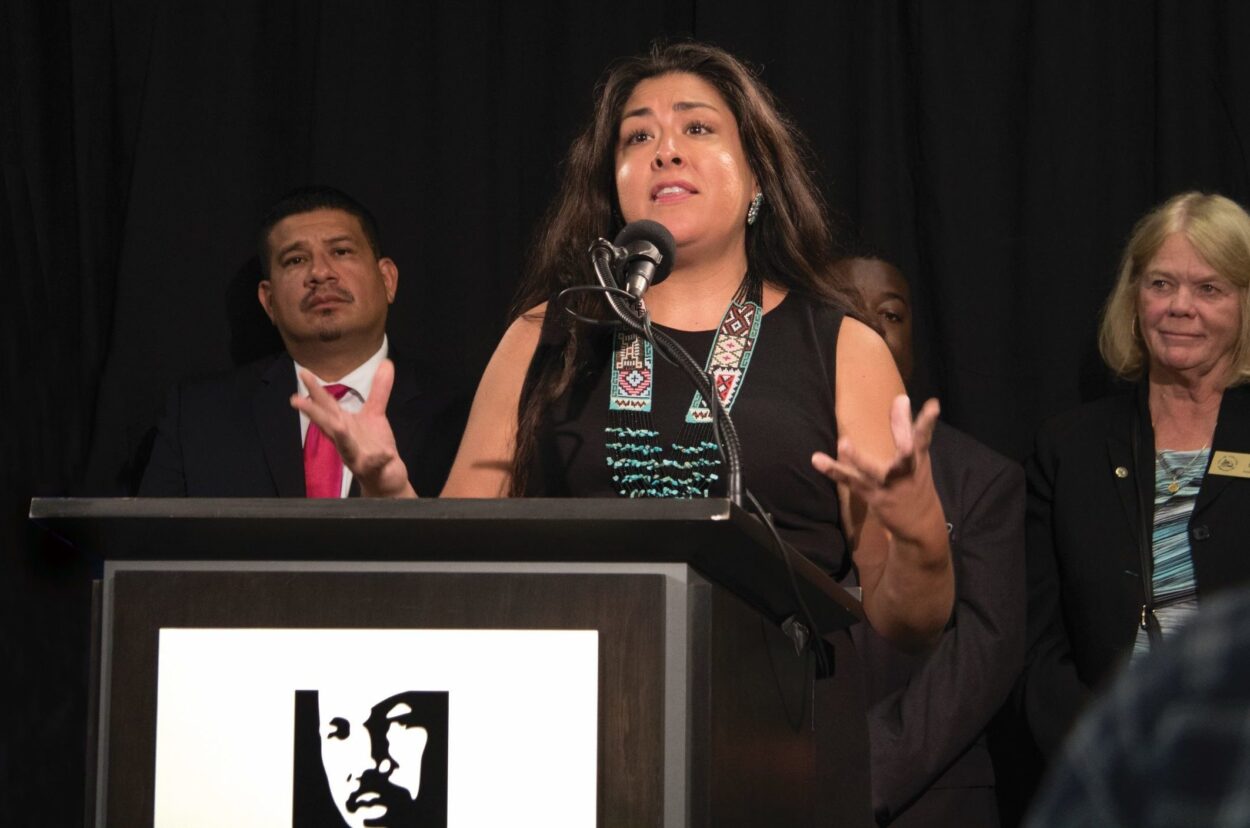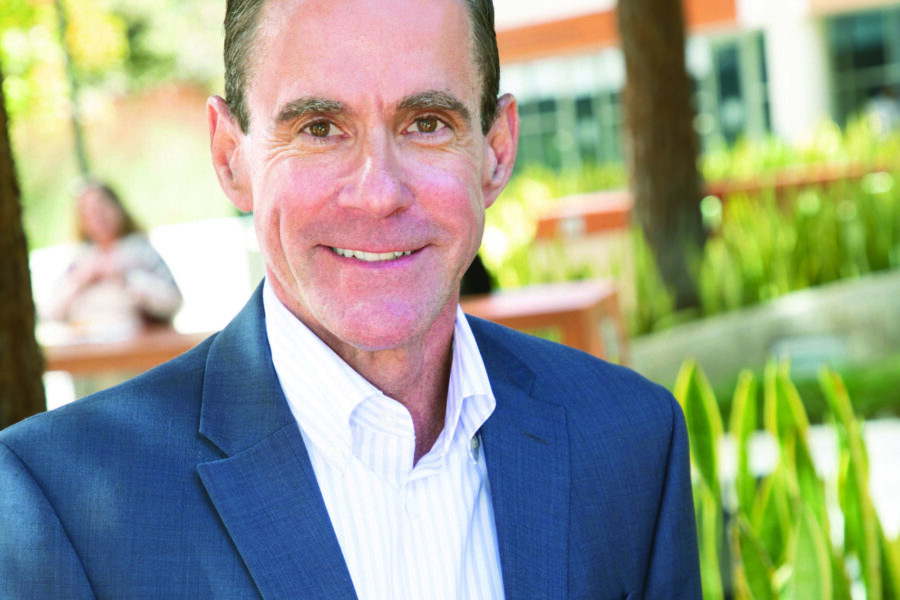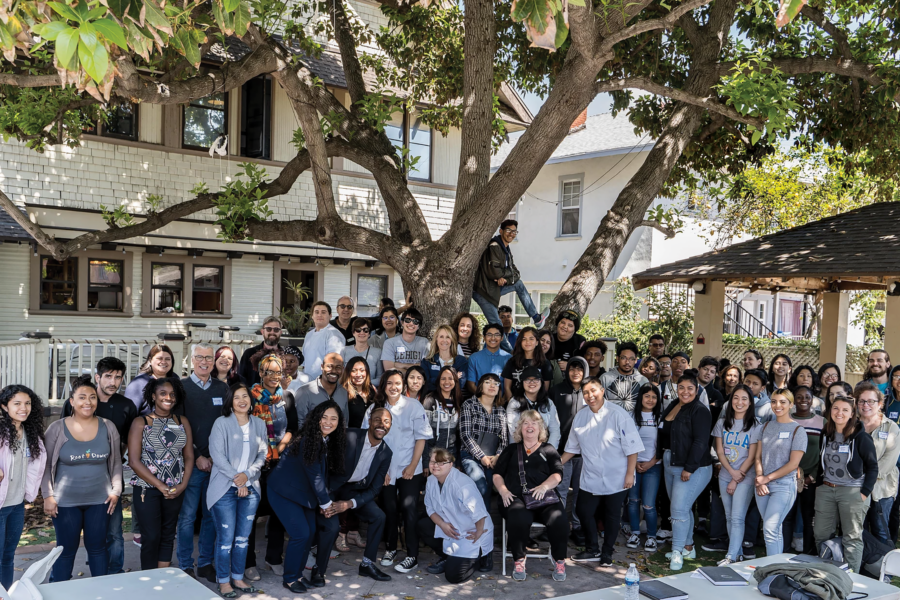Earlier this year, Colleen Echohawk ’09 (Antioch Seattle, Undergraduate Studies) made her first big foray into politics on one of the most public stages in Washington State: she ran for Mayor of Seattle. She used this platform and a vibrant campaign to push for policies and awareness around the issues that she sees most affecting her communities. While she didn’t end up winning the race, the campaign embodied this leader’s heart for service, her deep passion for social justice, and her bright political future.
Echohawk used her mayoral run especially to highlight the crisis of homelessness. Washington State ranks fifth among states in the size of its homeless population, and Seattle’s King County has more than 11,000 residents living without shelter. As the former Executive Director of Chief Seattle Club, the founder of the Coalition to End Urban Indigenous Homelessness, and the current Interim CEO and President of YouthCare, one of the area’s largest homeless services organizations, Echohawk has for years been working tirelessly to fight homelessness in Seattle and especially to highlight and address the ways that it disproportionately affects Indigenous populations.
“I know families and babies and elders who are sleeping outside in tents or on sidewalks or in cars,” says Echohawk. “And it’s heartbreaking. I thought, if I can bring my skill to this arena, I can offer leadership and prioritization.”
Making a run for mayor presented an opportunity for Echohawk to address this humanitarian crisis, raise awareness, and push for solutions. At the same time, an integral part of Echohawk’s journey for mayor was looking inside of herself and realizing that she is worthy and deserving of the call she has chosen to answer. Though she ended up coming in third place with 10% of the vote—she didn’t advance to the November run-off—the experience was a positive for Echohawk. Many thousands of people got to hear and feel her heart on major issues such as housing, police reform, economic recovery, and more.
“I learned a lot about courage,” she says. “I learned a lot about putting myself out there—my own views, my own stories, my own life. You have to be vulnerable and have a thick skin.” This could be particularly hard because of the extra pressure placed on leaders who don’t fit the normative mold of being white and male. Echohawk explains, “As a woman of color, often I feel like I need to be the expert, and I need to know everything to talk about it eloquently.”
In many ways, this mayoral run was a continuation of the path Echohawk’s parents encouraged her to pursue: living a life dedicated to the service and empowerment of others. Pursuing this life of service has been where she has found the most peace. As she explains, “I grew up with parents who said, ‘If you have a skill that is going to support the community, then it’s your obligation to jump in, do it, and get the work done.’”
Echohawk is an enrolled member of the Kithehaki Band of the Pawnee Nation and a member of the Upper Athabascan people of Mentasta Lake. She has won many awards for her work, including in 2018 when she received Antioch University’s Public Service Award. Seattle Magazine has named her one of Seattle’s most influential people.
The experience of running for mayor has fueled her, and she is determined to continue addressing the needs facing her community. She says, “You will never regret standing up for people who’ve been marginalized, those that have been left behind.”




